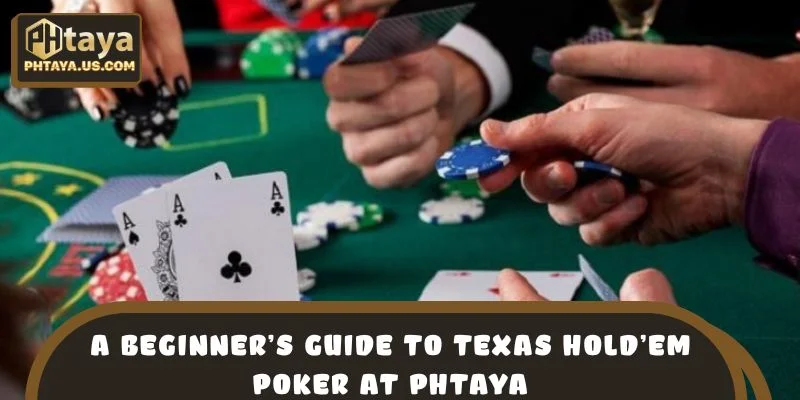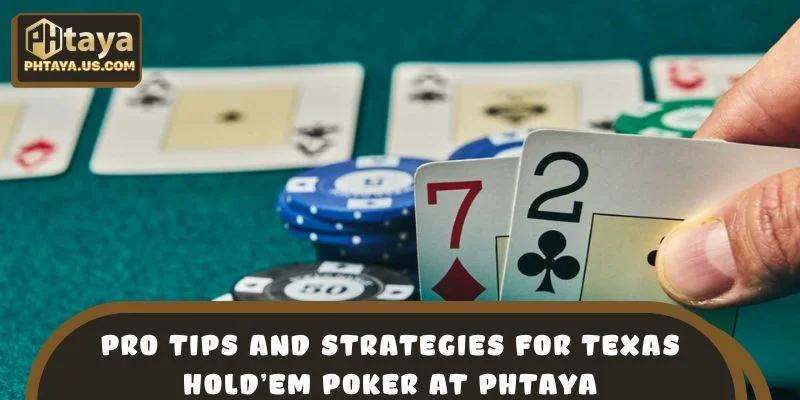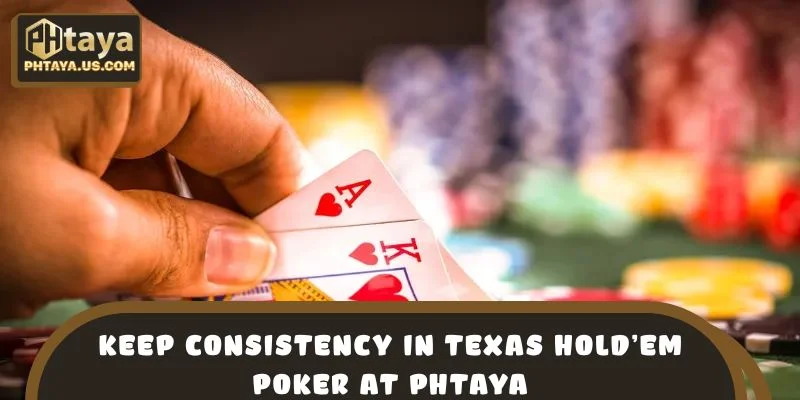Texas Holdem Poker in PHTAYA challenges you to combine skill, observation, and decision-making under pressure, offering a dynamic environment that tests every aspect of your strategy. By understanding hand rankings, betting patterns, and table positioning, you gain control over the game’s pace and outcomes.
Contents
Understanding the Core Mechanics of Texas Holdem Poker at PHTAYA

Grasping the fundamental rules is crucial for building a solid foundation in game. By mastering these basics, you position yourself to make smarter decisions at every stage of the game. The game’s structure revolves around strategic betting rounds, community cards, and the goal of assembling the strongest five-card hand.
The Role of Hole Cards
Hole cards form the backbone of your strategic decisions. Evaluating their strength relative to the board allows you to determine aggressive or cautious play. Skilled players often fold weak combinations early to conserve chips while betting selectively on strong hands.
In Texas Holdem Poker, proper use of hole cards ensures you maintain control over the flow of the game while minimizing unnecessary losses. Additionally, combining hole card assessment with positional awareness allows you to predict opponents’ moves more accurately and optimize your betting approach.
Betting Rounds
Each betting round represents an opportunity to gain control over the table. By observing timing and betting patterns, you can extract valuable information about opponents’ hands. Strategic timing allows you to apply pressure and maximize potential winnings. Adjusting bets according to the table’s dynamics increases your edge significantly. Mastering the rhythm of betting rounds also helps you disguise the strength of your hand and prevents opponents from easily reading your strategy.
Community Cards
Community cards create possibilities for multiple hand combinations in Texas Holdem Poker. Understanding potential draws and interpreting opponent actions during each reveal is essential. Accurate board reading allows for informed decisions, balancing risk and reward effectively. Players who master this skill consistently outperform those who rely purely on luck. Careful observation of how the board develops enables you to anticipate future hands and control the pace of the game more effectively.
Its Impact on Decisions
Table position influences your strategic choices and overall success. Being in a late position provides advantages, such as observing opponents’ actions before committing. Early position requires caution, as less information is available. Recognizing the impact of position on betting patterns enhances your overall game approach. Strategically leveraging your position can turn marginal hands into profitable opportunities and increase your ability to dictate the flow of play.
Advanced Tactics for High-Level Play in Texas Holdem Poker at PHTAYA

Elevating your gameplay requires understanding complex tactics beyond fundamental strategies. Experienced players use psychological insight, table dynamics, and situational analysis to maintain advantage. Applying advanced techniques increases the likelihood of extracting maximum value from every hand. These tactics integrate observation, adaptability, and calculated aggression.
Leveraging Table Image
Your table image influences opponents’ perceptions and reactions. Cultivating a tight-aggressive persona encourages respect and can force mistakes. Recognizing how others interpret your style provides leverage in critical situations.
Smart image management affects both betting patterns and overall game flow. By adjusting your play to reinforce or challenge this image, you can manipulate opponents’ expectations, creating opportunities to extract additional value from strong hands.
Exploiting Opponents’
Analyzing tendencies and patterns allows you to exploit weaknesses systematically. Repeated mistakes, predictable behavior, or inconsistent betting provide opportunities for profit.
Targeting vulnerable players strategically maximizes chip accumulation efficiently. Observing even subtle behavioral cues, such as hesitation or overbetting, helps you identify exploitable patterns and make timely, high-value moves.
Adapting Strategies
Tournament settings require dynamic adjustment of strategy at Texas Holdem Poker. Blind structures, stack sizes, and player eliminations necessitate flexible decision-making. Adapting to changing conditions enhances survival odds while increasing the potential for deep runs.
Strategic adaptation is a hallmark of expert players. Anticipating opponents’ adjustments and altering your approach in response ensures consistent performance across various stages of the tournament.
Utilizing Pot Control
Pot control manages exposure to risk while extracting value from strong hands. Calculating bet sizes relative to board texture ensures profitable outcomes. Consistently applying value betting strengthens chip accumulation without unnecessary risk.
Strategic pot management separates disciplined players from reckless ones. Combining pot control with selective aggression allows you to maximize profits on favorable hands while minimizing losses in uncertain situations.
Enhancing Skills and Maintaining Consistency in Texas Holdem Poker at PHTAYA

Skill development and consistent practice are essential to long-term success. Mastery of a game demands both theoretical knowledge and real-time application. By analyzing past performance, learning from mistakes, and refining techniques, players sustain high performance levels. Commitment to continuous improvement solidifies proficiency and increases winning potential.
Reviewing Hand Histories
Analyzing previous hands offers insight into strategic strengths and weaknesses. Hand history review highlights missed opportunities and informs future decision-making. Systematic review strengthens analytical thinking and sharpens intuition for future sessions. Tracking recurring patterns across multiple games helps identify areas for improvement and enables more precise adjustments in real-time situations, enhancing long-term performance.
Continuous Learning
In Texas Holdem Poker, theory concepts optimize strategic choices across varying scenarios. Understanding equilibrium strategies, expected value, and opponent modeling enhances performance. Applying these principles leads to disciplined and mathematically sound play. Incorporating game theory into daily practice allows you to anticipate opponents’ optimal plays and react strategically, increasing the likelihood of favorable outcomes consistently.
Practicing Focus
Maintaining focus and emotional composure directly impacts outcomes in Texas Holdem Poker. Tilt prevention, patience, and mindfulness are crucial for avoiding costly mistakes. Consistent mental discipline ensures rational decision-making under pressure.
Developing a routine to manage stress and maintain concentration during extended sessions strengthens decision-making and minimizes impulsive errors that can erode your chip stack.
Simulating Scenarios
Practicing simulated hands allows for risk-free experimentation with strategies. Scenario analysis develops adaptability and enhances predictive skills. Realistic simulations prepare players for critical situations and improve overall game awareness. Repeated exposure to varied scenarios builds confidence and sharpens intuition, making it easier to respond effectively when facing unexpected moves from opponents.
Conclusion
Texas Holdem Poker rewards skill, strategy, and disciplined decision-making. By mastering core mechanics, applying essential strategies, leveraging advanced tactics, and maintaining consistent practice, you can maximize potential and outperform competitors. Every decision—from hole card evaluation to table positioning—shapes your success.
